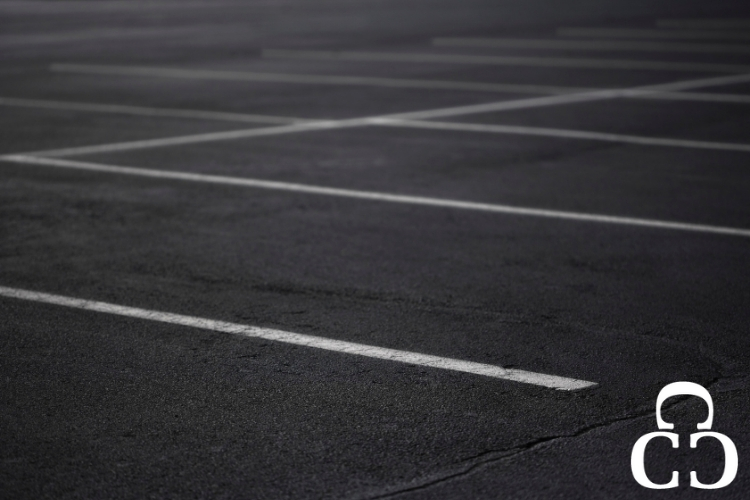
Parking lots are inevitably everywhere. Whether you are a restaurant, shopping center or school, your parking lot is bound to see traffic each and every day. It is important that your parking lot stays in good condition at all times during the year.
Parking lots are made of either concrete or asphalt. Each of these types of parking lots come with their own advantages, as well as disadvantages. Custom Concrete Creations is here to help make your decision easier. Here are some pros and cons for both asphalt and concrete parking lots.
Asphalt Parking Lots
Installation
Asphalt parking lots usually come with a quick installation, usually laid in a couple days or so, and should be able to be driven on not long after that. Asphalt is installed similar to concrete, but uses liquid asphalt as a binder, which is a residue left over from refining crude oil to make gasoline. Refining improvements have caused some asphalt shortages.
Maintenance
Asphalt parking lots have some maintenance. They will need to be coated with liquid asphalt every few years, and resurfaced every 10 years, sometimes less than that. Although the maintenance costs aren’t very much, this can still be a hassle to work on, especially if you’re parking lot is getting used daily.
Durability
Asphalt isn’t the most durable material to choose from. If not maintained properly, asphalt can crack or create potholes over time.
Energy Efficiency
Asphalt is a dark color, and will soften in extreme heat, in which it will become oily. This will cause the parking lot to become hot, which in turn can make the adjacent buildings hot as well. Hot buildings mean more money spent on your energy bill. The darker color of the asphalt, however, does help line striping contrast more smoothly, which can prevent confusion when parking.
Costs
Asphalt’s installation costs are relatively cheap, at least compared to concrete. However, maintenance costs can add up to a lot over time.
Concrete Parking Lots
Installation
Concrete parking lots come with many more design options than asphalt, with many colors and texture design options to choose from. Installing concrete parking lots takes a little bit longer than asphalt, which includes waiting for it to dry.
Maintenance
There is almost no maintenance that comes with concrete parking lots. Joint sealing and annual cleanings are about the only maintenance necessary. Using a sealer isn’t really needed unless it appears that it is substandard and can’t handle freeze-thaw cycles. However, a sealer will help prevent staining and keep your parking lot looking good! Linseed oil is one way to seal the surface.
Durability
Concrete is a very strong material and can carry heavy loads without developing potholes or rutting. It only takes five-inch-thick pavement to provide the same load-carrying capacity as eight inches of asphalt.
Energy Efficiency
Concrete is generally a light color, or at least much lighter than asphalt. This usually means the temperature is lower in the parking lot areas, especially in sunny areas that get hot. This will reduce the heat-island effect and should help surrounding buildings save some money on their energy bills.
Costs
The costs of concrete parking lots are more than asphalt right off the bat with the installation. It is a longer process, and concrete is a little bit more expensive material. However, with almost no maintenance needed, over a 20 year span, concrete and asphalt parking lot costs are going to end up being pretty similar.
We understand that deciding which material to use for your commercial parking lot can be hard. There are many factors that indicate each option is the best, but the decision is ultimately up to you.
Custom Concrete Creations is a leader in the decorative concrete world. Our passion and experience is unmatched. Contact us today to learn more about how we can help with your concrete needs!
